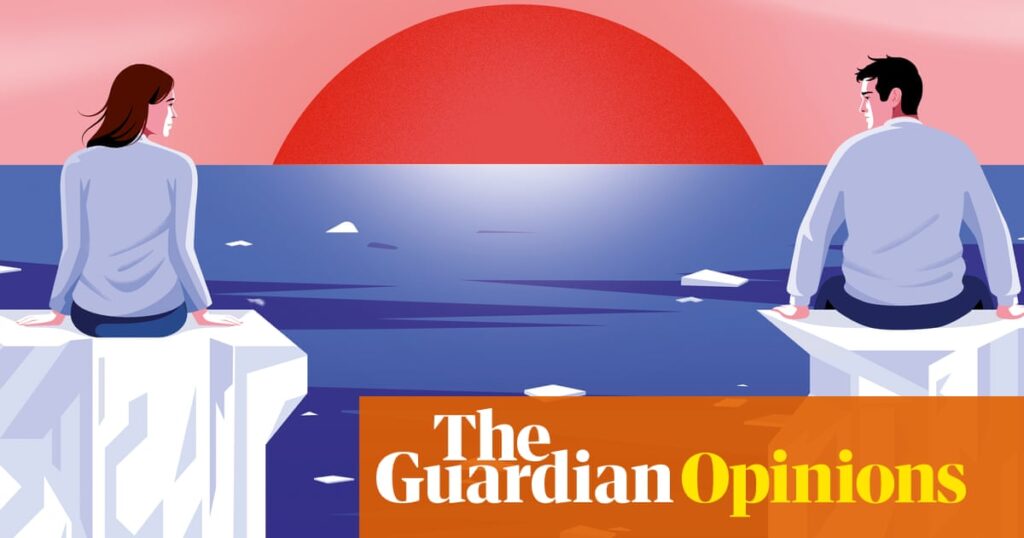Exploring the Expectations of an Ideal Heterosexual Girlfriend
Have you ever wondered how the ideal heterosexual girlfriend is expected to act? This question lingered in my mind after viewing Companion, a film featuring a crude millennial named Josh and his robot girlfriend, Iris. Crafted to be the quintessential partner, Iris is wholly devoted to Josh, prioritizing their relationship over everything else. Her memory banks are filled with fabricated experiences, such as the day they met in a supermarket when he awkwardly toppled a display of oranges, a moment she has been programmed to consider the pinnacle of her existence.
Reflections on Heterosexual Relationships
Like many contemporary narratives, Companion offers an exaggerated portrayal of a lopsided heterosexual dynamic that resonates with the “heteropessimist” discourse. In this view, men are often depicted as lackluster and unappealing, akin to Josh, while women find themselves disappointed yet entrenched in these relationships, reminiscent of a more self-aware Iris. Heteropessimism tends to accept that women may feel resigned to relationships reflecting the stark inequities between genders.
Social Media Influences on Young Women
As a millennial woman navigating social media, I have felt inundated with messages echoing this sentiment, which seems to be intensifying. In a recent article for the New York Times, Marie Solis examined the rising trend of heteropessimist sentiments among younger women since the term was coined in 2019. She noted a surge in women deleting dating apps and notable figures publicly committing to celibacy or identifying as “self-partnered,” reflecting an attitude that prioritizes personal growth and companionship over romantic entanglements.
Challenges and the Quest for a Balanced Relationship
I find the fervent expressions of “boysober” and “self-partnered” approaches invigorating. The passive acceptance of heteropessimism strikes me as puzzling. What exactly do women in the 2020s seek from relationships with men? Financial support? We are no longer marrying for paychecks but for shared resources. What about desire for intimacy or companionship? While these may be challenging to achieve outside traditional partnerships, is avoiding men entirely perhaps the prudent choice if they are truly as insufferable as depicted in Companion?
The Nature of Online Discourse
However, without a substantial movement of women fully embracing this notion, I question whether heterosexual relationships are genuinely that disheartening. Online sentiments can often be performative, reflecting what people believe will garner approval rather than their true feelings. Heteropessimism aligns with other progressive discourses of the past decade that emphasize self-awareness regarding participation in systemic issues without necessarily taking steps toward resolution.
Rethinking Relationship Narratives
When stripped of progressive language, the essence of heteropessimism seems outdated. The portrayal of women striving to be ideal partners for men who cannot even manage simple tasks reflects an outdated perspective on potential relationships. Companion fails to satirize these stereotypes; instead, it positions Iris as the protagonist deserving of sympathy despite being an overly compliant caricature. I found myself wishing for her to be powered down, and ironically, even Josh appears frustrated enough to want that. Overall, I left Companion feeling annoyed, particularly at the expectation to identify with such a painstakingly devoted robot, which, unsurprisingly, was penned by a man.
A New Era of Discussion on Heterosexuality
On a positive note, there are indications that these narratives may be evolving. Shon Faye’s recently released memoir Love in Exile thoughtfully navigates this shifting landscape, offering a refreshing perspective on heterosexuality as a challenged institution amidst social change. Faye reflects on the common pitfall of blaming partners for emotional deficiencies and instead suggests a more nuanced understanding of relationships.
Examining Emotional Expectations
In a recent interview, Faye echoed psychotherapist Esther Perel’s insight that we often expect one partner to fulfill multiple roles: a confidant, lover, co-parent, and financial advisor. Faye suggests that millennial men often lack the emotional reciprocity women seek. This raises an important question: why should we feel the need for men to embody these traits?
The Future of Female Relationships
This inquiry into the relevance of men in women’s lives today is significant. My generation’s experiences differ vastly from those of our parents; we don’t dedicate all our time to a single romantic relationship. If placing such extensive expectations on one individual creates strain or limits our possibilities, do we really need just one person to fulfill every role? Perhaps relationships can be about enjoying time with kind individuals while engaging in deeper emotional discussions with friends. With many of us opting out of parenthood, does monogamy hold the same necessity? Might a partner simply be someone with whom we share fulfilling connections, without the need to cohabit?
We now possess more autonomy than prior generations to explore these questions. While some women may choose to embrace the role of being a dutiful, compliant partner like Iris, I suggest that this portrayal currently dominates cultural narratives far more than it should.


